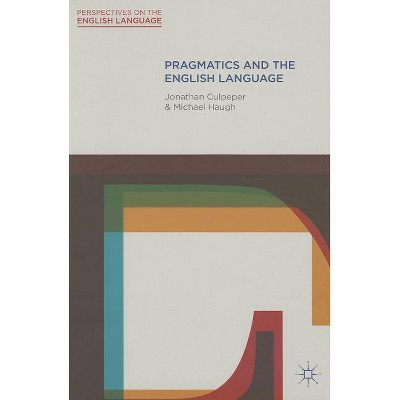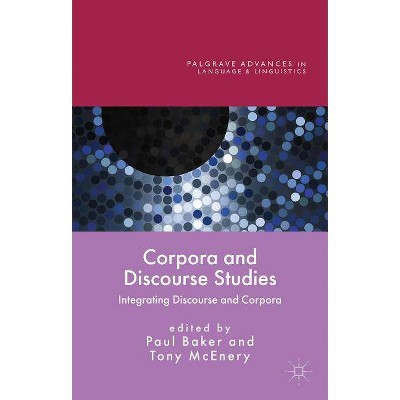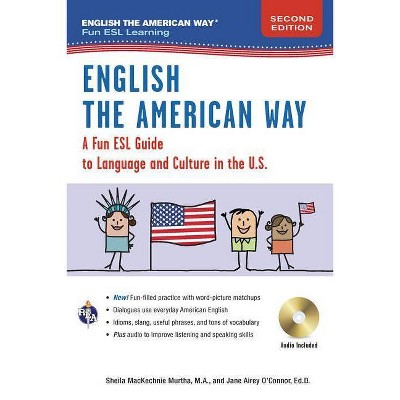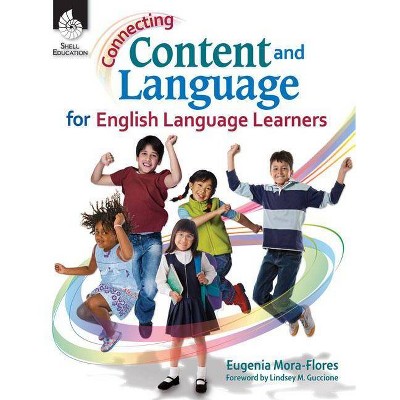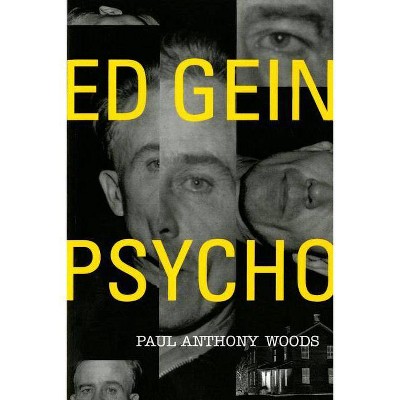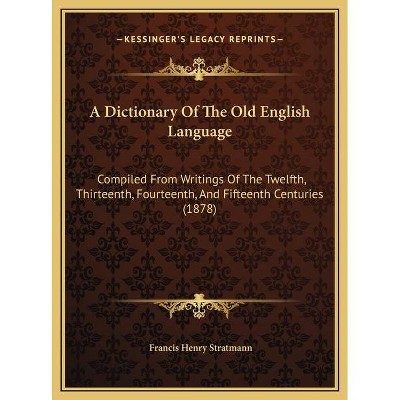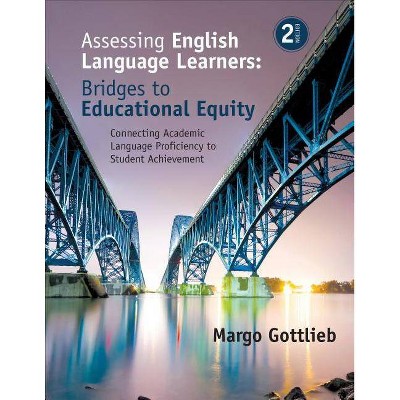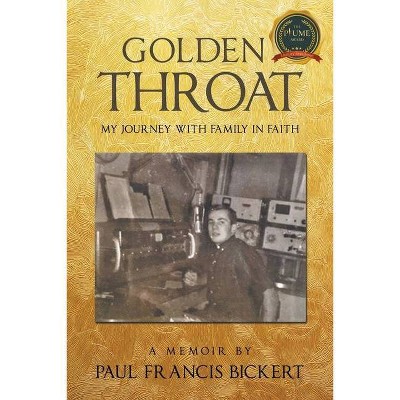English Language - 2nd Edition by Jonathan Culpeper & Paul Kerswill & Ruth Wodak & Anthony McEnery & Francis Katamba (Paperback)
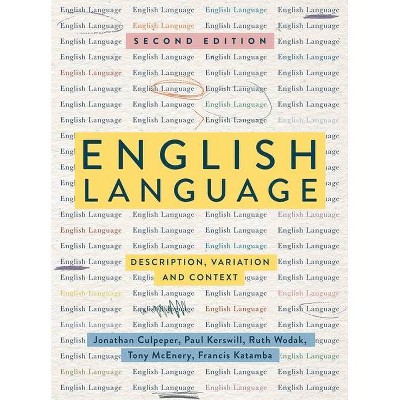
Similar Products
Products of same category from the store
AllProduct info
<p/><br></br><p><b> Book Synopsis </b></p></br></br><p>The second edition of this hugely successful textbook provides comprehensive coverage of a wide range of topics in theoretical and applied linguistics. Written by leading academics in the field, this text offers a firm grounding in linguistics and includes engaging insights into current research. <p/>It covers all the key areas of linguistic analysis, including phonetics, morphology, semantics and pragmatics, and core domains of study, comprising the history of the English language, regional and social variation, style and communication and interaction. Fresh material on research methods outlines key areas for consideration when carrying out a research project, and provides students with the framework they need to investigate linguistic phenomena for themselves. <p/>This is an invaluable resource for both undergraduate and postgraduate students on English language and linguistics degree programmes. <p/>New to this Edition: <br>- Seven new chapters covering topics such as second language acquisition, corpus linguistics and research methods<br>- A number of chapters have been substantially revised, including those on World Englishes, Literacies in Cyberspace and TEFL, TESOL and Linguistics<br>- Fully updated throughout to reflect the latest advances in the field</p><p/><br></br><p><b> Review Quotes </b></p></br></br><br><p>"This is an unusually rich textbook that combines breadth of coverage with depth of analysis. It provides accessible yet rigorous introductions to all aspects of the English language and uncovers English in all its fascinating varieties." --<i>Professor Andreas H. Jucker, University of Zurich, Switzerland</i> <p/>"The second edition acquaints readers with insights from top experts and provides an up-to-date overview from several points of departure. Engagingly written, this will be a rewarding read for undergraduates and more advanced students and scholars alike." --<i>Irma Taavitsainen, Professor Emeritus, University of Helsinki, Finland</i> <p/>"This comprehensive, well-written and interesting book covers a range of important topics that are central to the study of the English language, including the structure and history of English, its use in speech and writing, and the role it plays in human interaction, teaching and learning." --<i>Charles F. Meyer, University of Massachusetts, USA</i></p><br><p/><br></br><p><b> About the Author </b></p></br></br><p><b>Jonathan Culpeper</b> is Professor of English Language and Linguistics in the Department of Linguistics and English Language at Lancaster University, UK. Spanning pragmatics, stylistics and the history of English, his major publications include <i>Early Modern English Dialogues: Spoken Interaction as Writing</i> (2010, CUP; co-authored with Merja Kytö), <i>Impoliteness: Using Language to Cause Offence</i> (2011, CUP), and most recently<i> Pragmatics and the English Language</i> (2014, Palgrave; with Michael Haugh). He is currently leading the AHRC-funded <i>Encyclopaedia of Shakespeare's Language</i> project, which will provide evidence-based and contextualised accounts of Shakespeare's language. <p/><br><b>Paul Kerswill</b> is Professor of Sociolinguistics at the University of York. His research has focused on migration and dialect contact in both Norway and Britain, including Bergen and the New Town of Milton Keynes. He has worked on projects on the emergence of Multicultural London English. His publications include work on the role of children in language change, the phonology of new dialects and the representation of youth language in the media. He has co-edited <i>Dialect Change: Convergence and Divergence in European Languages</i> (with Frans Hinskens and Peter Auer, 2005) and <i>The Sage Handbook of Sociolinguistics</i> (with Ruth Wodak and Barbara Johnstone, 2010).<br><b>Ruth Wodak</b> is Emeritus Distinguished Professor of Discourse Studies at Lancaster University, UK, and affiliated to the University of Vienna. Besides various other prizes, she was awarded the Wittgenstein Prize for Elite Researchers in 1996 and an Honorary Doctorate from University of Örebro in Sweden in 2010. She is member of the British Academy of Social Sciences and of the <i>Academia Europaea</i>. Currently, she is PI of a three-year research project on 'The Discursive Construction of Austrian identity - 2015.' (http: //nationale-identitaet-2015.univie.ac.at/) Recent book publications include <i>The Politics of Fear. What Right-wing Populist Discourses Mean </i>(Sage, 2015; translation into the German 2016); <i>The Discourse of Politics in Action: </i> '<i>Politics as Usual'</i> (Palgrave), revised edition (2011); <i>Migration, Identity and Belonging </i>(with G. Delanty, P. Jones, 2011); <i>The Discursive Construction of History. Remembering the German Wehrmacht's War of Annihilation</i> (with H. Heer, W. Manoschek, A. Pollak, 2008); and <i>The SAGE Handbook of Sociolinguistics </i>(with Barbara Johnstone and Paul Kerswill, 2010).<br><b>Tony McEnery</b> is Distinguished Professor of English Language and Linguistics at Lancaster University. His research interests include English corpus linguistics as well as corpus linguistics applied to languages other than English. He has wide experience of editing and authoring, and is currently editor of the book series Advances in Corpus Linguistics (Routledge). His books include <i>Corpus Linguistics: Method, Theory and Practice</i> (with Andrew Hardie, CUP, 2011) and <i>Discourse Analysis and Media Attitudes</i> (With Paul Baker and Costas Gabrielatos, CUP, 2013). <p/><br><b>Francis Katamba</b> is Emeritus Professor of Linguistics in the Department of Linguistics and English Language at the University of Lancaster, UK. His research interests are in the areas of phonology and morphology. His publications include <i>An Introduction to Phonology</i> (1989), <i>Morphology: Critical Concepts in Linguistics </i>(2004), <i>English Words</i> (2nd edition, 2005), <i>Morphology</i> (2nd edition with John Stonham, 2006) and <i>Contemporary Linguistics: An Introduction</i> (2nd edition, with William O'Grady and John Archibald, 2011).<br><b>Jonathan Culpeper</b> is Professor of English Language and Linguistics in the Department of Linguistics and English Language at Lancaster University, UK. Spanning pragmatics, stylistics and the history of English, his major publications include <i>Early Modern English Dialogues: Spoken Interaction as Writing</i> (2010, CUP; co-authored with Merja Kytö), <i>Impoliteness: Using Language to Cause Offence</i> (2011, CUP), and most recently<i> Pragmatics and the English Language</i> (2014, Palgrave; with Michael Haugh). He is currently leading the AHRC-funded <i>Encyclopaedia of Shakespeare's Language</i> project, which will provide evidence-based and contextualised accounts of Shakespeare's language. <p/><b>Paul Kerswill</b> is Professor of Sociolinguistics at the University of York. His research has focused on migration and dialect contact in both Norway and Britain, including Bergen and the New Town of Milton Keynes. He has worked on projects on the emergence of Multicultural London English. His publications include work on the role of children in language change, the phonology of new dialects and the representation of youth language in the media. He has co-edited <i>Dialect Change: Convergence and Divergence in European Languages</i> (with Frans Hinskens and Peter Auer, 2005) and <i>The Sage Handbook of Sociolinguistics</i> (with Ruth Wodak and Barbara Johnstone, 2010). <p/><b>Ruth Wodak</b> is Emeritus Distinguished Professor of Discourse Studies at Lancaster University, UK, and affiliated to the University of Vienna. Besides various other prizes, she was awarded the Wittgenstein Prize for Elite Researchers in 1996 and an Honorary Doctorate from University of Örebro in Sweden in 2010. She is member of the British Academy of Social Sciences and of the <i>Academia Europaea</i>. Currently, she is PI of a three-year research project on 'The Discursive Construction of Austrian identity - 2015.' (http: //nationale-identitaet-2015.univie.ac.at/) Recent book publications include <i>The Politics of Fear. What Right-wing Populist Discourses Mean </i>(Sage, 2015; translation into the German 2016); <i>The Discourse of Politics in Action: </i> '<i>Politics as Usual'</i> (Palgrave), revised edition (2011); <i>Migration, Identity and Belonging </i>(with G. Delanty, P. Jones, 2011); <i>The Discursive Construction of History. Remembering the German Wehrmacht's War of Annihilation</i> (with H. Heer, W. Manoschek, A. Pollak, 2008); and <i>The SAGE Handbook of Sociolinguistics </i>(with Barbara Johnstone and Paul Kerswill, 2010). <p/><b>Tony McEnery</b> is Distinguished Professor of English Language and Linguistics at Lancaster University. His research interests include English corpus linguistics as well as corpus linguistics applied to languages other than English. He has wide experience of editing and authoring, and is currently editor of the book series Advances in Corpus Linguistics (Routledge). His books include <i>Corpus Linguistics: Method, Theory and Practice</i> (with Andrew Hardie, CUP, 2011) and <i>Discourse Analysis and Media Attitudes</i> (With Paul Baker and Costas Gabrielatos, CUP, 2013). <p/><b>Francis Katamba</b> is Emeritus Professor of Linguistics in the Department of Linguistics and English Language at the University of Lancaster, UK. His research interests are in the areas of phonology and morphology. His publications include <i>An Introduction to Phonology</i> (1989), <i>Morphology: Critical Concepts in Linguistics </i>(2004), <i>English Words</i> (2nd edition, 2005), <i>Morphology</i> (2nd edition with John Stonham, 2006) and <i>Contemporary Linguistics: An Introduction</i> (2nd edition, with William O'Grady and John Archibald, 2011).</p>
Price History
Price Archive shows prices from various stores, lets you see history and find the cheapest. There is no actual sale on the website. For all support, inquiry and suggestion messages communication@pricearchive.us
